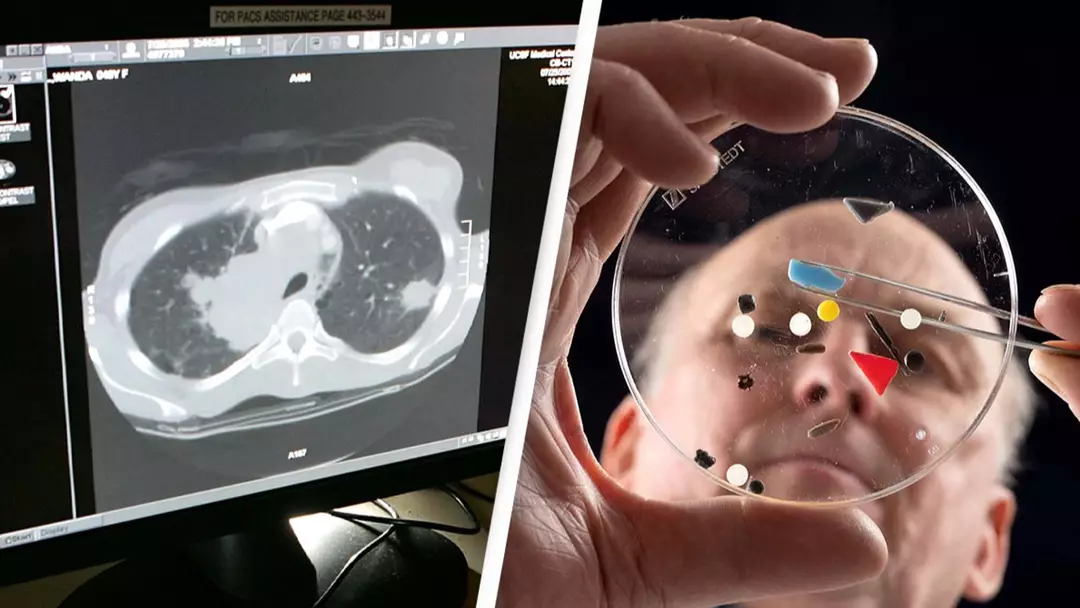Scientists reveal they may have discovered what's causing the unexplained rise in cancer cases
Scientists reveal they may have discovered what's causing
the unexplained rise in cancer cases
The study was published earlier this month
Scientists have revealed they may have discovered what's
causing the unexplained rise in cancer cases across the world.
In 2024, it was estimated around two million people were
diagnosed with cancer in
the US, a figure that's
increased sharply in recent years.
Some of the possible cause of many of these cancers for
which genetics, diet and
lifestyle cannot explain has left scientists stumped...
until now.
The study has helped scientists out in terms of unexplained
cancer cases (Getty Stock Photo)
Ultimately, Californian researchers
concluded that an individual being exposed to microplastics is 'suspected' to
play a role with the increase in colon and even lung cancer.
The study, which was published in ACS Publications
Environmental Science & Technology, earlier this month stated: "We
concluded that exposure to microplastics is 'suspected' to adversely impact the
colon and small intestine in humans."
On top of that, microplastics are 'suspected' of causing
chronic inflammation and damaging the immune system.
"Across the outcomes, we identified that exposure to
microplastics is 'suspected' to be a digestive hazard to humans, including a
suspected link to colon cancer, using the key characteristics of carcinogens
approach," the study added.
The study also found that microplastics can impact
fertility, damage sperm count in men and impact the ovaries and placenta in
women.
Particles from these microplastics can also cause
inflammation in the airways, which can increase the risk of someone developing
lung cancer.
The researchers added: "Microplastics are widespread
and mobile in the environment, being detected in air, surface water, costal
beaches, sediment, and food.
"They have been discovered in remote and pristine locations, including the Antarctic, deep ocean trenches, and Arctic sea ice.
The study has provided long-desired answers (Getty Stock
Photo)
"Due to their small size, microplastics more easily
enter and are distributed in the human body in comparison to larger particles;
microplastics have been measured in human placenta, breastmilk, and live."
Tracey J. Woodruff, a professor of obstetrics, gynaecology
and reproductive sciences and senior author on the study, added: "These
microplastics are basically particulate matter air pollution, and we know this
type of air pollution is harmful."
Such findings will hopefully be a wake up call for
many companies across
the globe who produce
mass amounts of plastics every single year.
Heck, nearly 460million metric tons of plastic was produced
last year, a figure that is expected to increase to 1.1 billion by 2050.
Nicholas Chartres, the study's first author, said: "We
urge regulatory agencies and policy leaders to consider the growing evidence of
health harms from microplastics, including colon and lung cancer."




Post a Comment